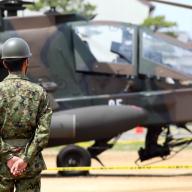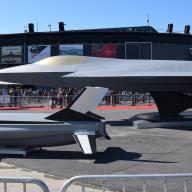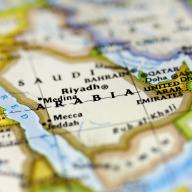This blog explores how Poland is using Ukraine war-linked arms and ammunition contracts in a bid to accelerate the modernization and expansion of its arms industry.
Related commentary:
Going private (equity): A new challenge to transparency in the arms industry
In the latest ranking of the world’s largest arms-producing and military services companies (the SIPRI Top 100), published in December 2022, two firms based in the United States—Peraton and Amentum—had recently been acquired by private equity firms. Both their arms sales were considered to have a high degree of uncertainty.
COVID-19: A new wave of European arms industry consolidation?
As coronavirus disease 2019 (COVID-19) has caused the most severe economic crisis since the 1930s, could we witness a new phase of consolidation within the Western and Central European arms industry? This SIPRI Essay gives an early glimpse at where these three factors stand after the ‘great lockdown’. It proposes that the European arms industry may be at the outset of a larger consolidation movement.
Saudi Arabia, armaments and conflict in the Middle East
This topical backgrounder puts a spotlight on armament developments in Saudi Arabia, the country with the highest levels of military spending and arms imports in the Middle East. It aims to contribute to the efforts by SIPRI to gain a better understanding of the impact of militarization on security, conflict, peace and development in the region.
Debating the future of the German arms industry, again
Germany is, once again, debating the future of its arms industry, with long-held state support for arms production within Germany appearing to crumble.
Lessons from the post-cold war transformation of East Central Europe’s arms industry
Arms production was the backbone of the Soviet-type command economy systems in East Central Europe (ECE), but with the collapse of the Eastern bloc, arms makers faced a drastic disruption in their economic, political and social environment.
Future challenges in the monitoring of international arms transfers
Western governments and defence companies are adapting to the effects of the 2008 economic crisis by devising new strategies to increase international arms sales.
Weighing the benefits of military versus civilian research in the European Union
The EU's attempt to fight the economic crisis by shifting research money to the defence sector is highly questionable.
Is an arms race just a race to the bottom?
The arms race to the bottom—when states willingly arm themselves even when evidence suggests they should disarm—has begun to shape states' military spending.






